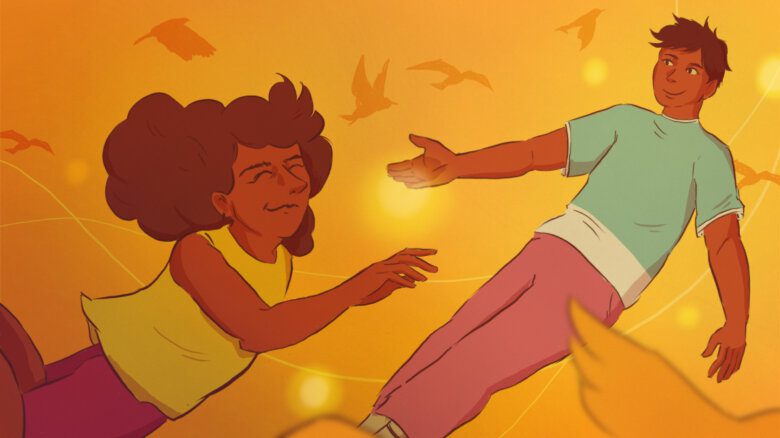September has arrived and as always things have gotten a lot busier. School is in, things have picked up at the office, the bars and restaurants are full again, and artists everywhere are gearing up to perform and create masterpieces for the new cultural season.
But all this activity is seriously cutting into our sex lives. Unless you’re a first year university student who’s just arrived in our fair city, you’re probably not getting nearly as much good loving as you enjoyed over the summer. There just doesn’t seem to be enough time.
While it is true that there are only so many hours in a day, a simple examination of some prevalent “wisdom” about the role of sex in nature reveals that making time for sex might be the key to holding civilization together.
One of the most annoying paradigms to arise with the modern age is the prevalent notion that human sexuality is a binary activity, and that evolution destines us to mindlessly perpetuate the “battle of the sexes.”
Men are from Mars, women are from Venus, and while the females of the species are designed to protect hearth, home and children, men are more amply rewarded, evolutionarily speaking, by getting out there and spreading that seed around. Sex is defined as procreative intercourse, and the primary motivation for the act is the perpetuation of the species. Sex, according to this model, is serious business.
This limited vision of sexuality permeates evolutionary biology, theology, and, to a large extent, social policy. The problem is, it’s utter bullshit.
You need look no further than homosexuality for proof of that. Throughout the animal world you’ll find queerness popping up in the most unusual places, begging the question: just what is sex for anyway?
Linda Wolfe reported on nature’s battle of the sexes from Japan in the 1970s. She was studying macaques, and as she got to know her monkey friends, she observed that the females kept having sex with one another in utter disregard for the established natural order.
Rarely mere flings, the female macaques paired off for days or weeks at a time, forming exclusive couples. They moved around together, and spent ages grooming one another between bouts of sexual activity that typically culminated in orgasm for both partners. Wolfe was convinced she was witnessing homosexual behaviour, but this news didn’t seem to ruffle many feathers in the established order.
“They said that females were mounting each other by mistake – they didn’t know what they were doing,” she recalls. “People wanted to believe that only weirdo humans engaged in this behaviour.”
Even today, many researchers are reluctant to admit that same-sex encounters are “normal” – that is, “part of what primates do, part of their total sexual repertoire,” says Wolfe.
Homosexual activity has been documented in over 130 species of birds. Same-sex pairs caress each other with obvious affection and tenderness. Male pairs and female pairs throughout the animal and insect kingdoms form long-lasting pair-bonds and reject, threaten, even fight off potential opposite-sex partners.
But homosexuality would seem to be a clear non-starter from a Darwinian perspective. Why are all these misguided creatures wasting time in same-sex relationships when they could be making babies?
Maybe it’s time we started learning from the animals.
“If you’re looking for homosexual sex in vast quantities, forget humans, it’s bonobos you want,” says primatologist Robin Dunbar. Observers report female bonobos smooching freely with each other, and indulging in a healthy and satisfying diet of mutual genital rubbing.
The male bonobos get into it as well, soul-kissing and mounting each other with abandon. As in a lot of species that enjoy homosexual encounters, activities that encourage loving contact and companionship seem to be as vitally important as procreation. Why? Because these activities keep everyone happy, and less likely to struggle over resources, social standing and available mates.
Sounds like something humans could use, doesn’t it?
It seems we are not so unlike bonobos, dolphins, and the birds and bees who all enjoy the relaxing, rewarding, pleasurable qualities of homosexuality. And just like in the animal kingdom, human sex serves a far more noble purpose: to reduce conflict and hold the group together.

 Why you can trust Xtra
Why you can trust Xtra


